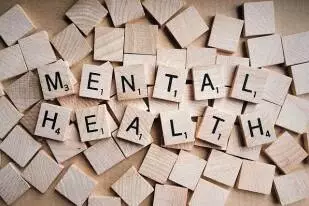TEL:
07366693154




 Mental health includes our emotional, psychological, and social well-being. It affects how we think, feel, and act. It also helps determine how we handle stress, relate to others, and make choices. Mental health is important at every stage of life, from childhood and adolescence through adulthood. For many individuals, mental illness is full of many unanswerable questions. The question “Why me?” is one that is asked on a regular basis. An individual can rapidly fall into a vicious downward spiral if help isn’t sought out. What is important to understand from a naturopathic perspective, the health of the mind and body are intricately linked. Just as our thoughts strongly influence our physical health, our individual physiology affects our mental and emotional well-being. Like all illnesses, mental health is bound to the same principles and its root is multi-factorial in nature. It is vital that a holistic approach (body, mind and soul) is taken to explore where the underlying imbalance is occurring. Assessing a person’s diet, sleep, exercise, stress management, thoughts, emotions, belief systems, exposure to environmental toxins and spirituality will be important in getting to the root cause(s).
Mental health includes our emotional, psychological, and social well-being. It affects how we think, feel, and act. It also helps determine how we handle stress, relate to others, and make choices. Mental health is important at every stage of life, from childhood and adolescence through adulthood. For many individuals, mental illness is full of many unanswerable questions. The question “Why me?” is one that is asked on a regular basis. An individual can rapidly fall into a vicious downward spiral if help isn’t sought out. What is important to understand from a naturopathic perspective, the health of the mind and body are intricately linked. Just as our thoughts strongly influence our physical health, our individual physiology affects our mental and emotional well-being. Like all illnesses, mental health is bound to the same principles and its root is multi-factorial in nature. It is vital that a holistic approach (body, mind and soul) is taken to explore where the underlying imbalance is occurring. Assessing a person’s diet, sleep, exercise, stress management, thoughts, emotions, belief systems, exposure to environmental toxins and spirituality will be important in getting to the root cause(s).
Our mental health is directly connected to our nervous system. The nervous system is a complex, highly specialised network. It organises, explains, and directs interactions between you and the world around you. The nervous system is divided into the brain and spinal cord (central nervous system, or CNS) and the nerve cells that control voluntary and involuntary movements (peripheral nervous system, or PNS). Our brains require the correct balance of amino acids, fats, vitamins, minerals and glucose in order to function properly, and individual needs can vary drastically based on life circumstances. Nervous system problems may occur slowly and cause a gradual loss of function (degenerative); or they may occur suddenly and cause life-threatening problems (acute). As a result symptoms may be mild or severe.
 Many people have mental health concerns from time to time. But a mental health concern becomes a mental illness when ongoing signs and symptoms cause frequent stress and affect your ability to function. Signs and symptoms of mental illness can vary, depending on the disorder, circumstances and other factors. Mental illness symptoms can affect emotions, thoughts and behaviours. Here are the typical signs and symptoms:
Many people have mental health concerns from time to time. But a mental health concern becomes a mental illness when ongoing signs and symptoms cause frequent stress and affect your ability to function. Signs and symptoms of mental illness can vary, depending on the disorder, circumstances and other factors. Mental illness symptoms can affect emotions, thoughts and behaviours. Here are the typical signs and symptoms:
Here are some of the main pathologies linked to poor mental health:
Suicidal thoughts and behaviour are common with some mental illnesses. If you think you may hurt yourself or attempt suicide, get help right away:
 There are certain factors may increase your risk of developing a mental illness which are important to be aware of, including:
There are certain factors may increase your risk of developing a mental illness which are important to be aware of, including:
 A big element contributing to mental health are the belief systems that we hold. They are held in our subconscious mind and ultimately shape our reality and how we perceive the world. Often we tend to accumulate negative belief systems that don’t serve us and our health due to big and small traumatic experiences/events in our life.
A big element contributing to mental health are the belief systems that we hold. They are held in our subconscious mind and ultimately shape our reality and how we perceive the world. Often we tend to accumulate negative belief systems that don’t serve us and our health due to big and small traumatic experiences/events in our life.
One of the most commonly held negative beliefs is, ‘I am not good enough’. Other negative beliefs such as ‘I am unlovable’ or ‘I am a failure’ if felt on a daily basis can set off a chain reaction in our neural pathways changing how our body behaves and how we view the world leading to illness.
All belief systems are linked to memories that we have experienced in our life. We may not be aware of them but they are there in our subconscious mind working in the background. Techniques such as Emotional Freedom Technique (EFT) and Matrix Reimprinting are very powerful tools in helping work with these emotions or traumatic memories by clearing the energy behind them. Once the energy has been cleared health returns to the body.
 There are many factors involved when looking at mental health concerns and why the body may not be functioning optimally. These require investigating holistically and the individual needs to be assessed as a whole to truly determine the root cause(s).
There are many factors involved when looking at mental health concerns and why the body may not be functioning optimally. These require investigating holistically and the individual needs to be assessed as a whole to truly determine the root cause(s).
Adjusting your nutritional intake and lifestyle habits, supporting mental wellbeing as well as assessing your spiritual wellbeing will play a crucial role in getting the mental health symptoms back into balance.
Everyone is individual and therefore there is no one size fits all approach when it comes to health. It is important to get a health plan tailored to your needs, symptoms and life circumstances.
At Higher Healing, being qualified in Naturopathy, Nutrition, Emotional Freedom and Matrix Reimprinting we have a truly holistic offering to provide the right support to transform your health. We also are able to offer private functional testing to assess in detail imbalances within the body to give you a clear picture of your health.
Our wish is for you to reach a higher level of healing, so you are able to transform your health. It is possible and you can do it. Start by taking the first step, get in touch to see how Higher Healing can help.

Book a free discovery call with one of our therapists to find out how Higher Healing can help you achieve your health or life goals.






